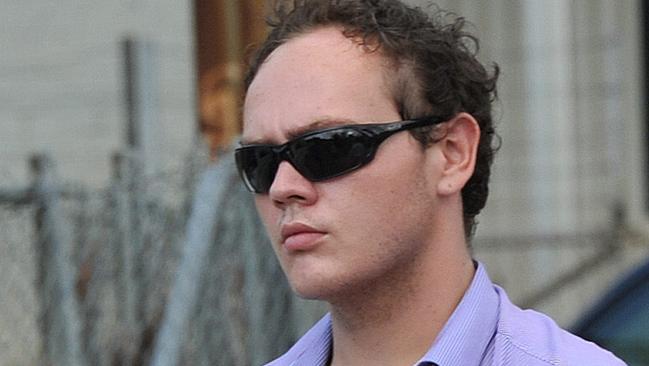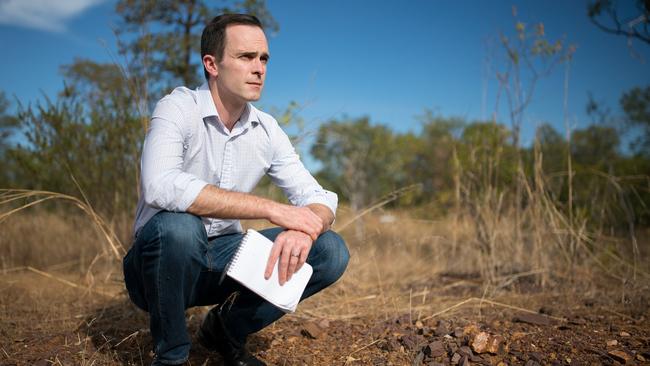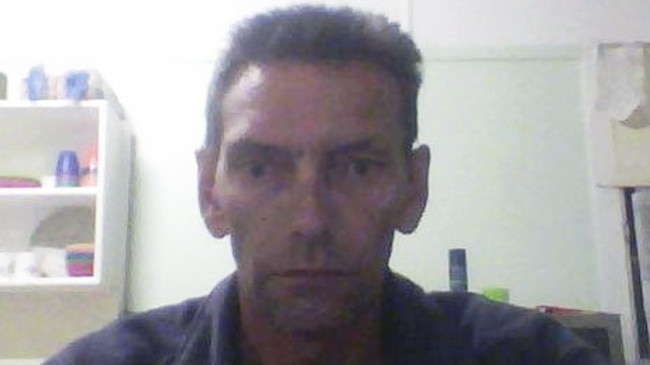
This will be the last thing I write about Zak Grieve. It will not be quite the last thing I write for The Weekend Australian.
Over the past week, this newspaper has published an unprecedented multimedia investigation into the case of Grieve, a 25-year-old Aboriginal man jailed for life over a murder the judge found he did not commit.
It has taken a lot of work, by a lot of people. It is the kind of reporting that can only happen with the full-throated support of those in management who are prepared to sacrifice the time and resources required over several months.
But it works. The series has highlighted serious questions about Grieve’s case and provoked a national debate — taken up by other media across the country — about the mandatory sentencing laws that sent him to jail.
Grieve was one of three men who agreed to murder Ray Niceforo in Katherine, Northern Territory, in October 2011. All three were found guilty, though Grieve insisted in court that he backed out of the killing at the last moment.
The other two men, Chris Malyschko and Darren Halfpenny, gave conflicting evidence, with the latter saying all three took part in the killing and the former agreeing with the account provided by Grieve.
Forensic evidence linked Malyschko and Halfpenny directly to the killing, but no such evidence was found to implicate Grieve. Judge Dean Mildren subsequently found the young man did back out of the murder, but said the Territory’s mandatory sentencing legislation, in which politicians tell judges how to punish certain crimes, meant he must send Grieve to jail for at least 20 years.
“I take no pleasure in this outcome,” Mildren said in court. “It is the fault of the minimum mandatory sentencing provisions, which inevitably bring about injustice.”
We were not the first to the story. The murder was reported by local media at the time and during the trial. It was also the subject of a 2014 magazine piece published by Fairfax Media, and recent reporting by the ABC.
But we did it differently. We made a six-part television documentary that was published on our website, which will now be broadcast on Foxtel.
We put a huge range of material online, including extended interviews and exhibits from the case. We ran stories in the newspaper over each of the past seven days, often on the front page.
This has taken a great deal of determination. In the years I have worked here, this story has required more work by more people than anything else with which I have been involved.
The result was a series of scoops, including exclusive interviews with the woman who paid for the contract killing and with Mildren, who said Territory laws left him “powerless” to give Grieve a jail sentence that was “just and fair”.
Today we reveal that another man also allegedly knew about the murder before it took place, was asked to stop it, and disposed of the weapons used — but was neither called as a witness nor charged.
Over the past week, the paper’s reporting and the prominence it has given to the issue has brought about real change. Other people have come forward, claiming to have known about the murder before it took place.
The Territory’s Attorney-General Natasha Fyles, was forced to apologise to the police force for misrepresenting its position on mandatory sentencing.
Territory Administrator John Hardy announced he would consider whether to grant Grieve an early release on parole, a decision known as a “mercy plea”.
Both sides of politics in the Territory now publicly say they support reform to the mandatory sentencing laws.

For me, this has been a lesson in the power of reporting and the effect it can have when those who edit and publish this newspaper provide the platform for it to be heard. I have spoken to Grieve’s mother and father on each of the past seven days, and both have thanked us for forcing this public attention on to his case after years in which they have attempted to do so, often without success.
I have thanked them in return for their bravery, for enduring the emotional upheaval this reporting has provoked and for putting their trust in us to tell their story in the first place. As we have discussed during these conversations, such trust is hard-won and easily lost.
Glenice and Warren Grieve have also said they understand this is only a beginning. Both the mercy plea and any reform to mandatory sentencing will take a long time, if they happen at all.
On Thursday, Warren Grieve visited his son in Darwin Correctional Centre and later told me that Zak — in jail, with limited access to the news media — has only a bare understanding of the storm of recent interest in his case.
He says he was careful in what he told his son, for fear of raising his hopes only for them to be dashed in the future.
“Hope is delicate,” Warren Grieve said outside the prison. “I’m happy, true to God I am, but I’m just taking everything with a grain of salt.”
Zak Grieve’s barrister, Felicity Gerry QC, also visited him on Thursday, to discuss what legal steps to take following the announcement about the mercy plea. That decision came about after Glenice Grieve asked us to publish an open letter to the Prime Minister, Governor-General, Chief Minister Michael Gunner and to Hardy.
Glenice, who does not have access to a computer, dictated the letter, which read in part: “I’m appealing to you as a parent, as a father. How would you feel if this happened to your child? What would you do? I need your help. Please help me.”
Within hours of receiving this letter via The Australian, the Administrator’s office responded to say it would begin the process of considering a mercy plea.
After speaking to Zak Grieve in prison following this decision, Gerry says her client “didn’t know about his mum’s letter” but he is grateful the Administrator is taking his case and her feelings seriously.
“His hope is that the NT government will change the law to abolish mandatory sentencing and give judges the power to re-sentence,” Gerry says.
“He wants me to write a letter to the Administrator asking for time to prepare.”
I will not be here to report on the result. Yesterday, I left my position as national crime reporter to return to Britain with my family.
It now falls to my colleagues, including our dedicated Darwin correspondent Amos Aikman, Matt Cunningham at Sky, those at the NT News and at the ABC in the Top End, to maintain the public interest in this case.
We are rivals but not enemies, united by a common belief in the value of our reporting and the public interest in what we do.
I said before that this will not be quite the last thing I write for The Australian. Today I will fly home, after more than five unforgettable years in this country.
I will be back, however, to report on the appeal court hearing for the Bowraville murders in November.
But that’s another story.



